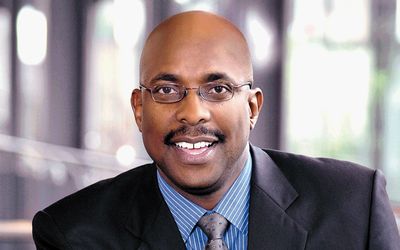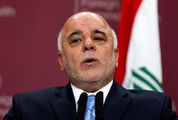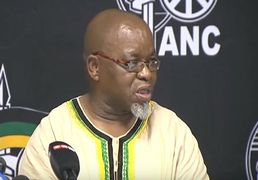SOUTH Africa’s international reputation will be defined by the actions it takes to improve on the socioeconomic front and the effort it puts into implementing the National Development Plan, BrandSA CEO Miller Matola said on Thursday.
Mr Matola was speaking at the release of the Reputation Institute’s 2013 findings on global perceptions of South Africa at the Wits Business School.
He said existing perceptions could change, and actions would ultimately define how a country was viewed in the context of a global marketplace.
Perceptions were affected by South Africans who were pessimistic about the country, Mr Matola said, but those seeking to visit or invest would take action more seriously.
South Africa was fortunate to have a plan until 2030 as well as ambitious infrastructure spending targets, he said.
The country had more "reputation enhancers" than was commonly believed and "the next thing after the (2010 Soccer World Cup) is the National Development Plan", he said.
The institute’s annual report on global reputations, released on Thursday, indicated that in the first quarter of the year South Africa’s reputation declined compared with 2012. A second survey conducted in August and September showed steady improvement through the course of 2013.
The survey measures the reputation of 50 countries through an online survey of perceptions of consumers in the Group of Eight developed countries: Canada, France, Germany, Italy, Japan, Russia, the UK and the US.
Countries with strong reputations experienced strengthened diplomacy, improved tourism potential and increased foreign direct investment, the institute’s country manager for South Africa, Trevor Ndlazi, said on Thursday.
The Marikana tragedy in August 2012 and the high-profile Oscar Pistorius murder trial earlier this year saw South Africa’s reputation drop to 46.78 points out of 100 in the January-March survey, from 47.56 points a year earlier.
A second survey conducted in August and September showed South Africa’s reputation improved to 51.24 points. The institute attributed this to the improved health of former president Nelson Mandela as well as the state visit by US President Barack Obama, which enhanced perceptions of South Africa’s stability.
It cited South African respondents as being significantly more pessimistic about their own country than consumers in G-8 countries — at a rating of 33.69.
Mr Matola said this tendency of "being too hard on ourselves" had a serious effect on the perceptions of people in other countries, but was probably an important factor in South Africa’s success as a democracy.
South African respondents viewed the country as doing well only in terms of being a "beautiful country", at a rating of 80.74, and an "enjoyable" country, at 70.42.
Locals gave the country a rating of 18.51 for "valuing education" and 6.89 for "operates efficiently".
Dominik Heil, of the Wits Business School and the Reputation Institute, said on Thursday that while the sample size was small, what seemed to show through strongly was that middle-aged South Africans were far more pessimistic than the younger generation.

Brand SA CEO Miller Matola. Picture: FINANCIAL MAIL
SOUTH Africa’s international reputation will be defined by the actions it takes to improve on the socioeconomic front and the effort it puts into implementing the National Development Plan, BrandSA CEO Miller Matola said on Thursday.
Mr Matola was speaking at the release of the Reputation Institute’s 2013 findings on global perceptions of South Africa at the Wits Business School.
He said existing perceptions could change, and actions would ultimately define how a country was viewed in the context of a global marketplace.
Perceptions were affected by South Africans who were pessimistic about the country, Mr Matola said, but those seeking to visit or invest would take action more seriously.
South Africa was fortunate to have a plan until 2030 as well as ambitious infrastructure spending targets, he said.
The country had more "reputation enhancers" than was commonly believed and "the next thing after the (2010 Soccer World Cup) is the National Development Plan", he said.
The institute’s annual report on global reputations, released on Thursday, indicated that in the first quarter of the year South Africa’s reputation declined compared with 2012. A second survey conducted in August and September showed steady improvement through the course of 2013.
The survey measures the reputation of 50 countries through an online survey of perceptions of consumers in the Group of Eight developed countries: Canada, France, Germany, Italy, Japan, Russia, the UK and the US.
Countries with strong reputations experienced strengthened diplomacy, improved tourism potential and increased foreign direct investment, the institute’s country manager for South Africa, Trevor Ndlazi, said on Thursday.
The Marikana tragedy in August 2012 and the high-profile Oscar Pistorius murder trial earlier this year saw South Africa’s reputation drop to 46.78 points out of 100 in the January-March survey, from 47.56 points a year earlier.
A second survey conducted in August and September showed South Africa’s reputation improved to 51.24 points. The institute attributed this to the improved health of former president Nelson Mandela as well as the state visit by US President Barack Obama, which enhanced perceptions of South Africa’s stability.
It cited South African respondents as being significantly more pessimistic about their own country than consumers in G-8 countries — at a rating of 33.69.
Mr Matola said this tendency of "being too hard on ourselves" had a serious effect on the perceptions of people in other countries, but was probably an important factor in South Africa’s success as a democracy.
South African respondents viewed the country as doing well only in terms of being a "beautiful country", at a rating of 80.74, and an "enjoyable" country, at 70.42.
Locals gave the country a rating of 18.51 for "valuing education" and 6.89 for "operates efficiently".
Dominik Heil, of the Wits Business School and the Reputation Institute, said on Thursday that while the sample size was small, what seemed to show through strongly was that middle-aged South Africans were far more pessimistic than the younger generation.



























Change: -0.47%
Change: -0.57%
Change: -1.76%
Change: -0.34%
Change: 0.02%
Data supplied by Profile Data
Change: -1.49%
Change: 0.09%
Change: -0.47%
Change: 0.00%
Change: -0.02%
Data supplied by Profile Data
Change: 0.48%
Change: 0.90%
Change: 0.36%
Change: -0.15%
Change: 1.05%
Data supplied by Profile Data
Change: 0.23%
Change: -0.32%
Change: 0.26%
Change: -1.05%
Change: -1.41%
Data supplied by Profile Data